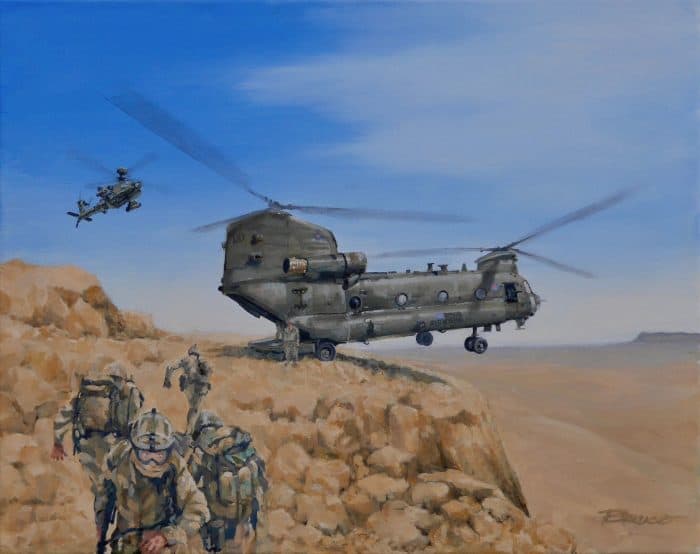How to Become an Army Aviation Officer

Well as I’ve said, the majority of pilots in the Army will be entering Army Aviation by one of the means covered last week. But there will be a significant portion of those reading this who will elect to become RLOs. Funnily enough, despite the fact that the majority of pilots are Warrants, there are twice as many routes to become a RLO (and, subsequently, a pilot) as there are for those following the Warrant path.

This being said, it’s worth noting…none of these routes are “direct aviation” routes like “Street-to-Seat,” or, to some degree, the traditional Aviation WOC route. Rather, they’re all commissioning routes and one must then assess to become a pilot. This means that when a soldier elects to become a RLO, regardless of the commissioning route they choose, they must perform well enough to be able to select Aviation as their Branch of Choice. Though I’ve heard variances on the numbers, the general rule is that commissionees in the top 10% of their class will get their Branch of Choice, as well as those somewhere around the 80th Percentile in their class.
The Army does this, ostensibly, to ensure that the talent pool is relatively even across the Officer Corps among all Branches. But I’ll tell you what I’ve told many aspiring Army pilots who’ve asked me how they can ensure that they will get their Branch of Choice: work hard and excel. Don’t make any plans to just coast and have things turn out as you most hope. Don’t PLAN on being somewhere around the 80th Percentile if you want to fly in the Army. Because that is almost always a plan to be, ultimately, disappointed. Very, very disappointed.
The other note I’ll make, and I talked about this a bit in last week’s article (and I’ll speak a bit MORE to it in the ROTC section below), but there is incredibly valuable experience to be gained by spending time as an enlisted soldier before commissioning. The greatest value is probably the most obvious: a RLO with prior-enlisted experience actually knows what life is like in the boots of their enlisted subordinates. This goes a long way in helping an officer to be immediately effective as a leader when they arrive at their unit (remember what a RLO’s real job is…?)
This applies in Aviation just as well as it does in any other Branch. There are absolutely other advantages to prior-enlisted experience, but this single factor weighs heavy enough to earn solo mention here. You may recall I mentioned a soapbox in last week’s article…
Okay! Without further delay, let’s talk RLO routes!
Table of Contents
United States Military Academy (West Point)
Stop me if you’ve ever heard of this one…
Actually, even if you try, I won’t stop. Though, admittedly, there’s not a lot of information I can give regarding West Point that you can’t find (and more reliably) elsewhere. There are entire books written about what life at West Point is like. And article databases, and biographies, and countless speeches given by West Pointers once they’ve got stars on their chest about their days at West Point…like I said, there’s a lot of places to find reliable info.

I, personally, did not go to the Academy. So I can’t realistically give someone an insider’s perspective. But I’ve spoken with a lot of West Pointers, and from everything I’ve gathered in conversation with them (and through reading different books and articles, hearing different speeches, etc., etc.), the USMA is the exception to what I stated above; I don’t feel like someone who commissions from West Point necessarily NEEDS prior-enlisted time. It wouldn’t hurt, certainly. In fact, it would undoubtedly be HELPFUL in their time at the academy as well as thereafter. However…these cadets have to live it and breathe it day-in and day-out for four (sometimes more) years to become officers.
Obviously that’s not to say West Point graduates are any smarter or better than RLOs who have commissioned by other means. And it’s not to say that, generally speaking, a West Pointer will be a better soldier or officer than someone commissioning from a different source. It IS saying, however, that they’ll arrive at their first unit well-and-truly Army-ed. They’ll have a pretty good idea of what the Army is like…even if their experience is a small, nuanced corner of the Army.
To all of this, however, I have to add the obvious disclaimer: it’s entirely personal opinion. I generally try to not fill you (the readers) with too much of that, but in this case, where my personal experience is exactly zero…personal opinion based off of hearsay (or hear…read?) is all I’ve got to offer. If you’re considering West Point and want something more concrete (and absolutely more valuable), like I said, there are a lot of sources of first-hand info. By Summer's end, there will be an E-Course available right here on BogiDope to help you through the application process for West Point if this is the route you decide to pursue.
Reserve Officer Training Corps (ROTC)
So I gave a warning above that there would be more preaching in this section. That’s because this is the only means in the United States Army whereby a person can potentially become a Regular Line Officer without having any kind of real experience in the Army. If I had a nickel for every ROTC cadet I’d spoken with who said, brain-to-mouth, out-loud, “I thought about going to Basic Training, but I didn’t have time for that,” I’d have far too many nickels. That statement is obviously a strange perversion of thought…an individual wants to be an Officer - to lead soldiers - but they “don’t have time” to complete even the most base-level training that every soldier has to accomplish.
So don’t be that person! If you want to lead soldiers, live life in their shoes for a while. Okay, preaching done.

The ROTC is another topic that most people are probably SOMEWHAT familiar with: those uniformed cats marching around your college campus once a week, or doing pushups at football games. But the basic concept is, a cadet is able to integrate their training to become a RLO into their college education. It shouldn’t be a surprise that this is a HUGE well from which the Army draws new Officers, as the convenience it offers a prospective Officer is unmatched. There’s stigma surrounding ROTC commissionees (just as there are stigma about West Pointers…and about junior officers in general), but a person with the general qualities that I’ve mentioned throughout all of these articles (hard-working, team-player, etc.) will have no issue integrating into a unit, regardless of the course from which they commissioned.
The general outline of a cadet’s life while in ROTC is, in addition to the required coursework for whatever degree they’re pursuing, they’ll take a 3-credit course every semester wherein they will learn basic Battle Drills, Tactics, Troop Leading Procedures, and progressively more Officer-stuff (mission/operation planning, logistics and the like). They will also be required to enroll in a weekly 4-hour lab wherein these soldier and leadership skills will be practiced. And then there’s Physical Training (PT) at least three mornings every week.
Furthermore, during the summers there will be opportunities for Army Skill Schools (Airborne School, Air Assault School, Mountain Warfare School, among others), internships, foreign trips, as well as obligatory training events following a cadet’s Sophomore and Junior years. Attending extracurriculars, performance at obligatory schools, grades in actual coursework, what degree is being pursued (STEM is a big focus for the Army), Army Physical Fitness Test (APFT) scores and more will all be taken into account when cadets are ranked among their classes. These rankings, ultimately, will decide whether a prospective officer chooses which Branch of the Army they’ll serve in, or whether the Army chooses for them.
Just to be clear, all of this is also the case for West Point, as well, though I’m sure there are even more things factored in of which I’m unaware…
So as I stated above…don’t take your chances on being one of "the lucky ones." Work hard and earn your right to choose your destiny. Here, again, any prior-enlisted experience serves one well, as that experience will mean less time and energy needs to be focused on the very basics of Army-ing – you’ve already done it – and that time and energy can then be given to ALL of the other factors that play into earning your right to choose what you want to do in the Army.







